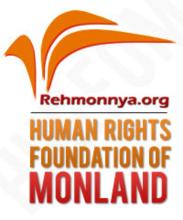Resource information
Executive Summary: "The growing optimism surrounding Burma’s political and social
transitions has begun to be accompanied by ambitions to resettle
displaced communities along the country’s border with Thailand. As
the notion and its attendant proposals continue to proliferate, it
seems timely to assess how the communities directly affected by this
prospect feel about resettlement. Interviews were conducted with 61
Mon internally displaced people (IDPs) who expressed an array of
views ranging from excitement for better jobs in new locations to
utter refusal for fear of renewed conflict.
Concerns in the IDP community that relocation could lead to a
recurrence of violence or exploitation may seem unfounded to those
flushed with enthusiasm for Burma’s brisk pace of reform. However, it
is precisely because of this rapid shift, after fifty years of a deeply
entrenched system of repression, that many ethnic communities are
unable to abruptly shed their enduring memories of systematic
injustice. Similarly, for people in remote areas, there has not yet been
adequate evidence of improvements to daily life or sufficient trust
built between disparate groups to warrant immediate, broad-based
support.
Importantly, almost all interviewees that addressed resettlement
used “if” to describe their opinions, explaining that relocation is
attractive only if adequate security, employment, education, and
healthcare services are provided. This highlights fundamental
priorities among IDPs, but also showcases the lack of information
currently granted to internally displaced people. For those that had
heard about relocation, many did not know if it was true, or where
and when they might go, or if it even applied to them.
This incomplete information sharing has led to resettlement
constituting little more than a rumor in IDP sites, and the consequent
anxiety and confusion has been unnecessary and detrimental. The
process needed to develop resettlement programs offers a singular
opportunity to build trust with IDP communities by employing an
inclusive and participatory approach.
The varying opinions and levels of support for resettlement
demonstrated in this report serve as a key indicator that the IDP
community is not a homogeneous group about which conclusions can
be easily or independently reached. Some IDPs reported enjoying new
freedoms and infrastructure projects, while other accounts were
framed by doubt, exhibiting vivid memories of past abuses and few
observations of significant change. In any case, each individual IDP or
IDP family has a unique set of values and experiences that will define
what an agreeable future looks like, and each must be given the
chance to make free, prior, and informed decisions regarding
engagement with resettlement programs.
This report’s primary aim is to amplify the voices of Mon IDPs and
encourage the incorporation of their opinions into the development
of resettlement agendas. We urge that the President Thein Sein
government, the New Mon State Party, and associated international
organizations be directly accountable to IDP populations by respecting
their narratives and promoting full transparency in every stage of the
process. While recent, positive changes may provide compelling
reasons for people to return, they should not completely overwhelm
considerations of why they left.



